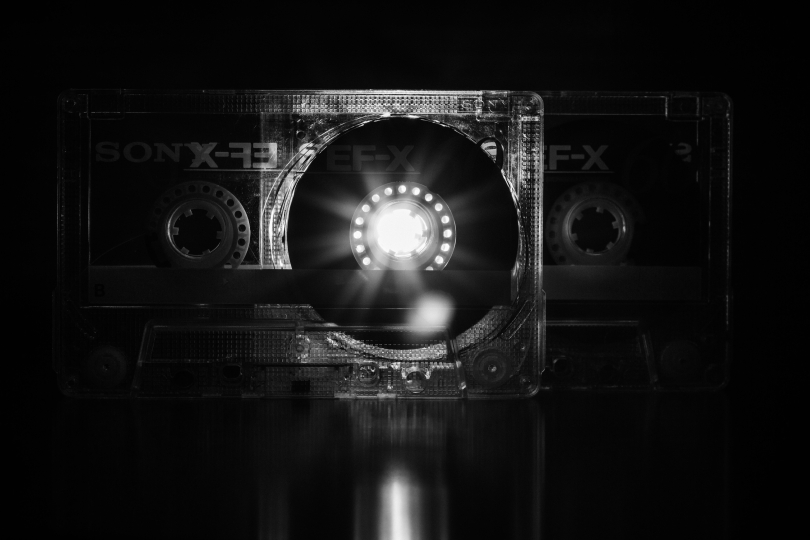
TOP 5 Fascinating Theories on Music
The world is an incredible place full of contradictory forces and laws that go beyond our understanding. A pessimist might see wars, horrors and violence that we use on ourselves or animals and nature. An optimist, on the other hand, rejoices in the everyday miracles of life, the short moments of Buddhahood or the deeds of rare kind people. Musicians see the world as a pulsating frequency of endlessly inspiring sounds and emotions. However, some phenomena are inexplicable, aren't they? How is it possible that one musician is famous and rich and another (equally talented) lives in grinding poverty? Why do most people like four-bar stale songs and fall asleep with boredom at classical music or jazz? Let's take a look at the top 5 fascinating theories on how music works.
1. In the right place at the right time
Joshua Bell is a world-famous violin virtuoso who decided to take part in a little social experiment in 2007. He donned a baseball cap and played as an incognito busker at the L'Enfant Plaza Metro station in Washington, D.C. It was all videotaped by a hidden camera. Of the 1,097 people who passed by, only seven stopped to listen to him, and one recognized him. For his nearly 45-minute performance, Bell collected about 32 dollars from 27 passers-by (plus 20 dollars from a fan). The surprising result of the experiment went viral and was shared around the world. Some people see it as a sad story of a world that is too busy, too preoccupied, too indifferent, full of ignorance and not even interested in the best that classical music has to offer.
This story is often interpreted as an inspirational metaphor for finding the right place and the right time. You can do your best, but if you're not appreciated and feel like you're banging your head against the wall, it might be that you're in the wrong place, surrounded by people who are ignorant or can't see your quality. Isn't it absurd that people who pass a violin genius on the subway unnoticed would be willing to pay thousands of dollars for his ticket at Carnegie Hall? In our post-modern digital age full of all sorts of music gadgets and AI models, are we even able to recognize quality anymore? To discern that someone can really play and someone is actually just pretending to? To simply feel the beauty? Having heard of the Milli Vanilli scandal, would you have thought there would be a TikTok platform where people are famous and adored for faking singing to someone else's recording?
Being in the right place at the right time has a crazy and absurd context in this case. You can practice eight hours a day for ten years and still be outdone in popularity by a cat cutely meowing or a toddler playing air guitar. The competition is crazy, ubiquitous and, most importantly, absolutely unpredictable. Fashion trends and "hype" are changing at such a speed that even the position of celebrities is starting to shake. Almost anyone in the world can be one – anytime, anywhere.
2. The difference between being quality and popular
Another phenomenon that is incomprehensible to me is the sheer randomness between quality and popularity. I disagree with the opinion that all popular music is trash and kitsch for the masses. I don't necessarily have to be a fan of Taylor Swift, Ed Sheeran or Dua Lipa to appreciate the high artistic and professional quality of some of their songs (for example, I love the basslines on Dua Lipa's recent albums).
Many artists and bands are very popular and, at the same time, have a certain degree of artistic quality. But there is also an increasing number of celebrities who only use music as a soundtrack to their ego trips, and all they care about is the wallet of their potential fans. In music, the equation simply doesn't work: talent + diligence = fame and fortune. I often feel sorry for how many brilliant, talented, hardworking and beautiful artistic souls end up failing.
Is there a secret formula? What has to come together to make it happen? Does the grouping of planets or stars matter? Sometimes it boggles my mind when I see how many second-rate and downright annoying individuals become popular. With this image? With that annoying, scratchy voice? The lyrics? Excuse me. I don't get it. I guess there is no answer to that. One can't figure out what ingredients and what story one has to write "to get it right", so to speak. Another mystery of the music world.
3. The secret of a hit
One of the most famous producers in the world Rick Rubin very often talks about this topic. He repeats in many interviews that he doesn't discuss "the next hit" with his artists and bands, but only their emotions and sincerity. He is interested in musicians who are not afraid to be themselves, not ashamed of their pains or joys and living in their world.
Authentic music, in his opinion, is downright egocentric. His role as a producer is to encourage the artists' individuality and idiosyncrasy in his subtle ways and through communication with them. You have to be totally committed to the creative process and your unique energy to be able to create a potential hit. Only, you never know that ahead of time. One can't calculate the audience's taste and mood. Otherwise, one ends up with annoying, intrusive hits that come at us from all sides on the radio or in the public space.
However, there are also hit factories with their utterly pragmatic approach, such as the Motown era or now in Nashville. The devil only knows the truth. I prefer Rubin's understanding because it resonates with my naive, romantic approach to music as well. But I'm sure Ed Sheeran's method that you have to make lots of bad songs before making a great one, works, too.
4. Individuality versus the crowd
With an individual, you can look into each other's eyes and perceive the nuances of subtle gesticulation, body language and the fine details of communication. Facing a crowd, you take a megaphone and yell short, simple lines that are easy to respond to. The crowd is stirred and manipulated to suit your agenda. The crowd is a dull entity in need of guidance.
This is not just my personal opinion, but also the view of many well-known philosophers, politicians and artists, as well as demagogues and populists. Go for a beer with your scientist friend and spend long hours in discussion over fascinating topics of scientific progress. Throw a party for the science faculty and you'll still be partying on the most mediocre hits at midnight.
I mean no disrespect to the scientists. Of course, the exceptions prove the rule. But I've played at too many corporate parties and events to believe that the crowd can let it all hang out even on something that can still be considered art. Nor do I want to come across as a snob who turns up his nose at "folk entertainment". I just find it incredible how much power crowd psychosis has.
Even the most intelligent individual can hardly avoid that elusive, obtuse, unyielding force that will eventually make them shout slogans they would never utter alone, or commit acts that they are outraged to see others doing on the TV news. The crowd is a force that often dictates actions that individuals would never commit on their own. And those who can control the crowd can control the music business.
5. What is talent?
One of the biggest clichés in music is the talent debate. What does it even mean to have talent? Is it an absolute pitch? Is it a beautiful voice? Is it a technical skill when playing an instrument? When we see someone who can play guitar or drums or sing beautifully, we automatically say they are talented.
You learn four chords, compose a Wonderwall and everyone will tell you how talented you are. You'll practice eight hours a day from the age of four, you'll lose your childhood and positive relationship with your parents (let's face it, who's behind all those "prodigy kids" on social media?), you'll learn to play the full repertoire of Bach and Rachmaninoff – and they will say you're talented.
Talent, in my opinion, is as much a mystical entity as a hit. We can't determine what either one is made of, we can endlessly analyze them, dissect them right, left and centre, and write hundreds of books and recommendations on the subject. Yet, we still can't capture their essence. And yet we all feel clearly inside what it is, don't we? After all, we can instantly recognize a hit, as well as a talented musician.
Yes, in retrospect, one can always be wise after the event and explain why something became a hit or what a specific talented musician had to do to get to the pedestal of fame and recognition. But at the very moment, nobody knows anyway that a hit is being created or a talent is growing. No one can see the end of the road, no one knows how it will turn out. And that is perhaps the best motivation for developing talent and working on music. Because life needs the thrill of the mystery and the adventure of the unknown.
Dear friends, enjoy your fascinating music journey and cheers to 2024.
If you have found an error or typo in the article, please let us know by e-mail info@insounder.org.





